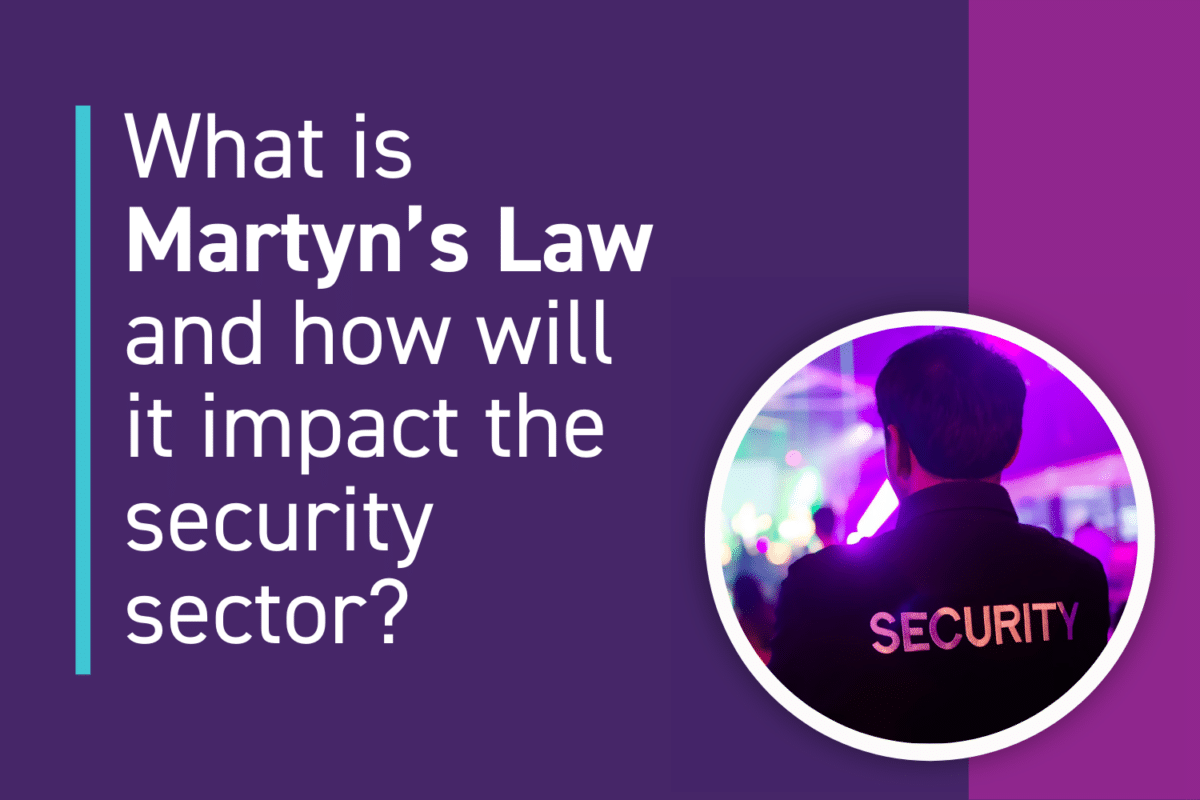What is Martyn’s Law and how will it impact the security sector?

Martyn’s Law – formally The Terrorism (Protection of Premises) Bill – is a bill currently in parliament that aims to better protect the public from terror attacks by requiring public venues to improve preparedness and have systems in place to help keep people safe.
It is known as Martyn’s Law in tribute of Martyn Hett who was killed alongside 21 others in the 2017 Manchester Arena attack, and Martyn’s mother has campaigned for these changes for many years.
The law covers both venues that are mainly used for gatherings of people, and venues that are used for events (such as those for festivals, where the main use is not as a venue).
What will the changes mean for public venues?
Those responsible for premises will have new requirements for emergency preparedness, depending on their size and venue capacity. There is a tiered approach (Standard Tier and Enhanced Tier plus events) to the requirements to make sure that they are reasonable for small businesses.
Under the new act there is a role for the person responsible for certain premises and events known as the ‘Designated Senior Individual (DSI)’ . They will have specific named duties under the legislation.
What are standard duty premises?
A standard duty premises is any location with a capacity of 200-799 people. They will be required to put in place procedures to reduce harm to the public in the event of an attack. This involves 4 key areas:
- Evacuation
- Invacuating
- Lockdown
- Communication
This will involve staff training on how to identify safe routes to cover and how to use security equipment. Read more in the standard duty requirements factsheet.
Standard duty premises are also referred to as ‘Standard Tier’.
What is an Enhanced Tier premises?
An enhanced tier is any location with a capacity of 800+ people. The enhanced tier has the responsibility to reduce the risk of an attack. They have to consider:
- Measures
- Controls
- Procedures
- Mitigation
- Attack types
- Plus the 4 key areas in the standard tier
This may involve putting in place extra measures such as CCTV or hiring security staff. Read more in the enhanced duty requirements factsheet.
How will Martyn’s Law compliance be regulated?
The Security Industry Authority (SIA) has been named as the regulator for Martyn’s Law. Their role will be to provide advice and guidance on complying with the law, but they will also have the power to issue a range of civil sanctions and tools to address proven instances of persistent or serious non-compliance. These powers are underpinned by relevant criminal offences.
When will the changes take place?
The bill is yet to pass through parliament, after which it will need to gain Royal Assent. There will be a period of time between then and the law coming into force – to allow for venues and affected businesses to prepare for the changes.
It is expected that all businesses will need to be compliant by late 2026, with enforcement and sanction powers coming in early 2027.
Support and advice will be readily available early 2025 upon successfully passing the bill.
Get in touch
SFJ Awards are the leading awarding body and End-Point Assessment Organisation for the protective services sector, specialising in security, resilience, protection, and justice. Get in touch today to find out how we can help.